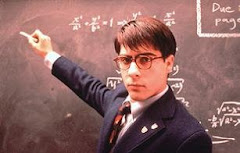
"And where are the windows? Where does the light shine in?...forgive me, but I haven't got the answer to that one. I'm not even sure there are any windows in this particular house. Maybe the light is going to have to come in as best it can, through whatever chinks and cracks have been left in the builder's faulty craftsmanship, and if that's the case you can be sure that nobody feels worse about it than I do...God knows there certainly ought to be a window around here somewhere, for all of us."
-Richard Yates, from the short story Builders
Ever sentimental for a raw metaphor, the late author Richard Yates chronicled the fallibility of the human experience and the resiliency of the human soul better than any other writer of his time. And so is the readers experience in Yates's novel, Revolutionary Road, a well guarded literary masterpiece that is finally reaching its long overdue mainstream recognition through the Sam Mendes (American Beauty) directed film adaptation starring Kate Winslet and Leo DiCaprio.
I, ever the sucker for cliches, am here to say that the book is much better than the movie. It didn't have to be though.
Mendes handled this project like a high school stage director. At times the characters seemed to be mocking themselves in a sort of, "look, I'm being ironic" kind of way. In particular, Mrs. Givings (Kathy Bates) appeared to be winking at us the entire time with her over-the-top, suggestive inflections. As for Leo and Kate, they played a great, well, Leo and Kate. Ultimately, the star power of the main characters, Frank and April Wheeler, might have had a mightier impact in the care of lesser known actors.
Famed author Richard Russo, a student of Yates at the Iowa's Writers Workshop in the mid-60's, once noted that each Yates character carried the weight of being big dreamers that consistently fail. After all, in America, the bigger you dream the harder you fail. With Yates though, the protagonists failure was universally accepted, and even expected, due to the enormity of the dream in the first place. Once at the crossroad of reality and vulnerability, the characters veneer is slowly peeled away, layer by layer, like an onion that's been idle on the kitchen counter for a week, permeating the entire house with a stench so repulsive that it seeps into the homes occupants clothing and taken out into the world to horrify the rest of us and, ultimately, they succumb to the low expectations that they had saddled themselves in the first place.
Author Robert Lacy, a friend and former student of Yates, said it best, when he referred to Yates's "seemingly congenital inability to sugarcoat". Indeed.
Revolutionary Road is bleak (insert understatement here), thought provoking and a grind to witness. The movie is mostly fodder, however only when compared to the book. Left to stand on its own without comparison to the book, Mendes posted an admirable effort. Yates though, never to be outdone long after his passing, would likely note the irony in Mendes the director, dreaming big to capture Revolutionary Road, only to fall short after he had it all in the palm of his hand. For Mendes, solace can be taken for taking on a project that may have been a little too ambitious.
So where does the light shine in? For all of us, this is daily consideration as we forge ahead, fail, succeed, celebrate and despair our collective human drama.
Don't dismiss this film outright, but rather embrace it with low expectations, the kind that Yates demanded of his characters. Then, be certain to seize the films intent more vividly in the pages of the book, Revolutionary Road.
Plenty of writers write about real life. Richard Yates wrote about life that is real, and he did it exceptionally well.





No comments:
Post a Comment